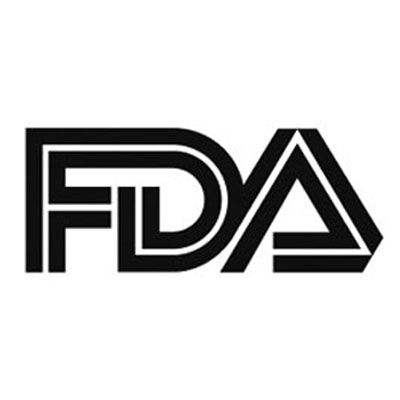Rolling NDA Submitted to FDA for Umbralisib as Treatment of Marginal Zone, Follicular Lymphomas
“The completion of this New Drug Application submission marks an important milestone in bringing us 1 step closer to providing umbralisib as a potential treatment option for patients with relapsed/refractory marginal zone lymphoma and follicular lymphoma."

A rolling submission of a New Drug Application (NDA) has been completed, requesting accelerated approval of umbralisib (TGR-1202) as treatment of patients with previously treated marginal zone lymphoma (MZL) and follicular lymphoma (FL), announced umbralisib developer TG Therapeutics, Inc.1
“The completion of this NDA submission marks an important milestone in bringing us 1 step closer to providing umbralisib as a potential treatment option for patients with relapsed/refractory MZL and FL,” stated Michael S. Weiss, executive chairman and chief executive officer, TG Therapeutics. “As a company this is a very exciting moment for us, as it marks our very first NDA submission, and I commend our team for all their efforts to get to this point.”
The submission for umbralisib is supported by findings from the multicenter, open-label phase 2 UNITY-NHL trial (NCT02793583), which explored the single agent as treatment of patients with MZL who had received at least 1 prior line with an anti-cancer CD20 regimen. According to results announced in 2019, the study met the primary end point of overall response rate (ORR).
The target ORR for umbralisib in this study was 40% to 50%, and all patients were able to achieve an ORR in this range.
According to the interim findings presented in 2019 for patients in the MZL cohort, the ORR was 52%, including a complete response rate of 19% and a partial response rate of 33% (95% CI, 8.4-not reached). Stable disease was not estimated. The clinical benefit rate observed in patients with MZL was 88%.2
The study demonstrated an 86% reduction in tumor burden, and the median time to response was 2.7 months. Investigators noted the estimated progression-free survival at 12 months is 66%, which is a secondary end point in the study. The median progression-free survival was not reached.
No unexpected safety signals or toxicities were observed with umbralisib in the UNITY-NHL study. The most common adverse events included diarrhea, nausea, and fatigue, but these were mostly grade 1. The most common grade 3 or higher adverse events were neutropenia (13%), diarrhea (10%), and alanine aminotransferase or aspartate aminotransferase (10%).
To be included in this study, patients had to have relapsed or refractory non-Hodgkin lymphoma and an ECOG performance status of 0 to 2. Patients who had major surgery, chemotherapy, or immunotherapy were excluded from the study, as well as patients with evidence of hepatitis B virus, hepatitis C virus, or known HIV infection. Patients could not enroll to the study if they had undergone an autologous hematologic stem cell transplantation within 6 months of the study or who had prior therapy with a PI3K inhibitor.
MZL and FL are both indolent lymphomas that make up subgroups of non-Hodgkin lymphoma (NHL). MZL is the third most common B-cell NHL, which accounts for approximately 8% of all NHL cases in the United States. It consists of 3 different subsets, as well, including extranodal MZL of the mucosal-associated lymphoid tissue, nodal MZL, and splenic MZL. FL is a chronic disease that many patients can live with for years, but it is the most common indolent lymphoma in the United States, accounting for approximately 20% of all NHL cases.1
Umbralisib has previously received a Breakthrough Therapy designation from the FDA for the treatment of patients with MZL based on the UNITY-NHL study, as well as an Orphan Drug designation for the treatment of patients with MZL and FL.
Reference
- TG Therapeutics Completes Rolling Submission of New Drug Application to the U.S. Food and Drug Administration for Umbralisib as a Treatment for Patients with Previously Treated Marginal Zone Lymphoma or Follicular Lymphoma. News Release. TG Therapeutics, Inc. June 17, 2020. Accessed June 17, 2020. https://yhoo.it/2zGWQ07
- TG Therapeutics reports positive interim data from UNITY-NHL phase 2b trial evaluating umbralisib monotherapy in patients with marginal zone lymphoma at the 2019 AACR annual meeting. News Release. TG Therapeutics, Inc. April 1, 2019. Accessed January 16, 2020. https://bit.ly/3ajr9XU
Examining the Non-Hodgkin Lymphoma Treatment Paradigm
July 15th 2022In season 3, episode 6 of Targeted Talks, Yazan Samhouri, MD, discusses the exciting new agents for the treatment of non-Hodgkin lymphoma, the clinical trials that support their use, and hopes for the future of treatment.
Listen
Does Odronextamab Show Hope in FL and DLBCL Despite Regulatory Hurdles?
November 5th 2024Despite regulatory challenges from the FDA, odronextamab has received European approval for the treatment of patients with relapsed/refractory follicular lymphoma or diffuse large B-cell lymphoma following 2 prior treatments.
Read More